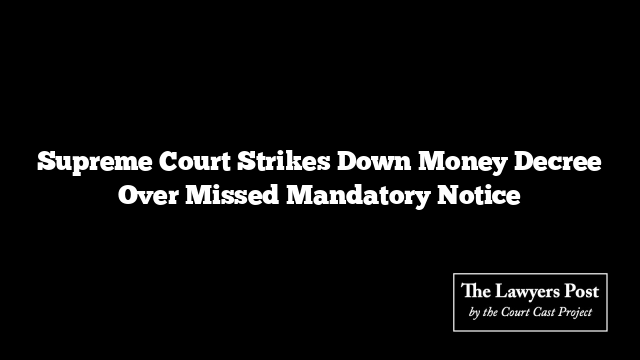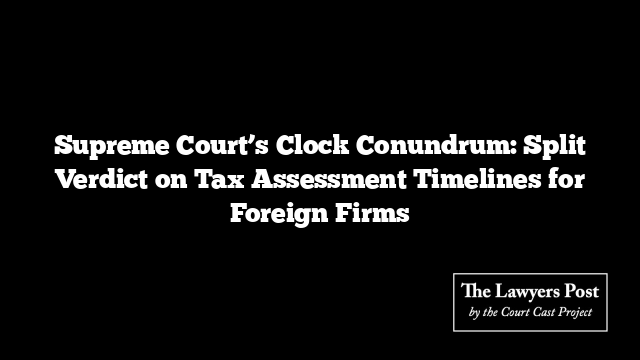In a sharp reminder that legal procedure is not mere formality, the Supreme Court has ruled that skipping the mandatory notice under Section 80 of the Civil Procedure Code before suing a state entity can strip a decree of all force—rendering it legally lifeless and open to challenge at the execution stage.
A bench of Justices JB Pardiwala and R Mahadevan dealt with a case where a state-owned corporation found itself dragged into a money recovery suit without ever receiving the statutory Section 80 notice. This lapse, the Court held, went “to the root of the jurisdiction” of the trial court, making the decree itself a nullity.
While the Executing Court normally cannot go beyond the decree, the judges clarified that it must, under Section 47 CPC, examine objections if the decree is fundamentally unenforceable—whether due to lack of jurisdiction, a suit against someone already deceased, or other legal voids.
Here, the trial court had added the corporation as a defendant mid-way without the notice, decreed the suit in the plaintiff’s favour, and saw its decision upheld by the High Court. Both the trial and executing courts had brushed aside the corporation’s objections at the threshold.
The Supreme Court was unimpressed. It underscored that Section 80’s notice requirement is not a technicality but a statutory prerequisite for suing the government or its undertakings. Ignoring it, the Court said, strips the trial court of authority to proceed—making the decree inexecutable.
Citing its earlier ruling in Brakewel Automotive Components v. Selvam Alagappan, the bench reiterated that an executing court can, and must, address such jurisdictional defects when they are apparent on the record.
The appeal was allowed, the decree declared a nullity, and the corporation freed from its monetary liability—its procedural rights having been vindicated at the highest level.




